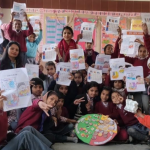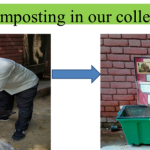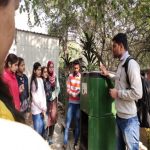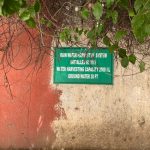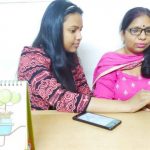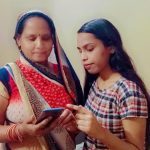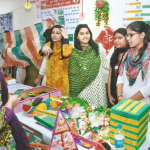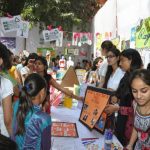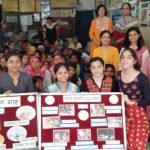Best practices
Best practices
Best Practice 1
Title: Environmental Consciousness and Sustainability
Objective of the Practice:
The primary idea of environment consciousness and sustainability at IHE is to better comprehend the global environment and how human actions affect it. Our endeavours can be underpinned in three strategies. First, the college is dedicated to providing students with an interdisciplinary education. This commitment is premised on the idea that understanding environmental challenges is based on familiarity with divergent perspectives and the synthesis of the natural sciences, social sciences, and humanities.
Second, environmental and sustainability concerns can be dealt with through research that crosses disciplinary boundaries and practical field- based education that connects classrooms and communities.
Third, we attempt to generate, transmit and disseminate knowledge relevant to environment concerns on resource management, air quality, and public health with the community.
The Context
IHE is committed to the cause of building environmental consciousness among students, staff and community members. It has made numerous efforts at green practices at the campus, generating and disseminating knowledge on issues and concerns of the environment. The college is situated in an urban area of Delhi. Our collective lives are impacted by the local, national and global contexts. Building a campus that has zero plastic use, produces minimal waste, disposes/converts of its solid, liquid, and biomedical waste responsibly, conserves energy, lowers consumption, protects biodiversity, and practises self-sustainability in areas of water and cleanliness is challenging due to environmental degradation, traffic, industrial infrastructure, pollution levels, and the city’s dense urban population. Thus, following activities are put in practise:
Composting: Under the initiative SORT, the college has accomplished its goal of transforming all food waste from the canteen and laboratories into nutrient-rich organic manure through composting (Segregation of Organic-Waste for Recycling and Treatment). Aerobins have been built on the college campus in conjunction with IPCA, and roughly 100 kg of organic compost has been harvested, allowing the college to be self-sufficient in terms of its compost needs.
Tobacco and alcohol -free zone: The college has guaranteed that its campus and neighbouring areas are alcohol and tobacco-free zones. The college also regularly organises awareness campaigns towards this purpose.
Reduction of plastic waste: As part of an endeavour to make the college campus a zero-plastic zone, the use of plastics has been significantly decreased.
Water Conservation Initiatives: The college has a team of gardeners who, with the assistance of faculty members and students. We have led plantation campaigns in and outside the campus. Faculty members and students participated in a nation-wide effort called “Nadi ko Jano” organised by the Research for Resurgence Foundation (RFRF) to collect real-time data on the rivers of India through crowdsourcing. This programme helped educate students about the significance of our local water bodies and rivers and how to manage these water sources sustainably.Tap and flush leaks are reduced by executing timely repairs and educating students and staff about water conservation.
Vermicomposting: Vermicompost is produced by two methods – pit and bin and is used for maintaining nurseries and herbal garden at the campus.
Provision of solar lights: In order to reduce its carbon footprint and become more ecologically conscious, the college has installed 22 solar lights on its campus as a sustainable alternative to standard street lights. Some corridors have also been lit with solar lights. It has done it in liaison with Innovative Power Solutions. The college is in the process of installing solar panels to meet its energy requirements.
Paper recycling unit: The college has collaborated with Technology and Action for Rural Advancement to establish a paper recycling unit (TARA). The college collects waste paper and converts it into recycled paper, transforming some into creative folders etc.
Field Trips: Each year, students participate in field trips to biodiversity parks, gardens, nurseries, and waste management facilities to learn about sustainable and eco-friendly techniques that can be incorporated into daily life.
Increase in green cover: The college has greatly improved its green cover by increasing the quantity of potted plants, constructing a herb garden, and establishing its own seed bank. On campus, there are over 100 plant species, including 16 types of medicinal herbs. The college maintains three small nurseries in which saplings are grown for use in tree-plantation campaigns.
Research: The college supports and encourages research projects that identify needs, raise awareness, and provide design interventions for sustainable water conservation, sustainable dyeing and printing techniques, organic food practices and contribute to public health and nutrition. Few illustrative examples are:
(i) Recycling Floral waste from temples by using different techniques of Eco- printing on cotton fabric
(ii) Mapping the vulnerability of women in India to climate change at the sub-national scale
(iii) Fabrication of fabrics using pre-consumer textile waste using water soluble films; to optimise the process for application of pomegranate peel using papaya peel dye on cotton fabric
(iv) Silk caravan: From trash to trend
(v) Long term health impacts after SAM in children and adults: A cohort of children has been followed longitudinally to investigate whether malnutrition at any age affects endocrine and exocrine pancreatic size, structure and function later in life.
(vi) Analysis of nutrition labels of commonly consumed processed foods and development of mobile applications to track their intake: The mobile application named “ProfoodIN” was developed to allow the users to track the contribution of processed foods to their daily nutrient intake. The users could also enter their anthropometry data to get their BMI and WHR data.
(vii) Development of biodegradable packaging film using green banana peel flour
(viii) Policy analysis, stakeholder mapping and consumer behaviour regarding food labeling
(ix) Effect of oral cinnamon intervention on metabolic profile and body composition of Asian Indians with metabolic syndrome: a randomised double-blind control trial
The study found that the use of cinnamon had significant decrease in fasting blood glucose, glycosylated haemoglobin, waist circumference and body mass index and improvement in waist-hip ratio, blood pressure, serum total cholesterol, low-density lipoprotein cholesterol, serum triglycerides, and high-density lipoprotein cholesterol of the participants.
Capacity building for a sustainable way of life: The college takes pride in building awareness among students and encouraging them to embrace a sustainable way of life. We adhere to a pedagogy that emphasises action in our environmental education courses. The students engage in field-based project work, run awareness campaigns, and evaluate and reflect on their environmental contributions. For example, the course, Pedagogy of Environmental Studies, includes themes of water, air, food, family and friends (including plants and animals) etc. Through community narratives, newspaper articles, videos and infographics awareness about depletion and scarcity of natural resources is raised. The student interns work with government schools in the neighbouring communities and encourage communities to take small and big steps in their daily lives. In most MCD schools, a vegetable garden and a compost pit were created and sustained over the years. As part of the course ‘Resources and Sustainable Development’, the students conducted a survey to determine the sustainable practices regarding the use of resources in few Delhi residential areas. Information was gathered with an emphasis on various domains, including plastic footprint calculation, trash management, electricity management, and water management. Potability, turbidity and hardness of household drinking water was analysed by water testing. Results were shared with the community.
Community extension initiatives: Through multiple platforms such as the environment committee, the National Service Scheme (NSS), and student societies, our students engage in raising awareness and trying to address the local concerns of the community. They organised plantation drives, strikes against plastic, nukkad nataks, and visits to a birds’ hospital. The students’ society Enactus has established project Lehar which provides sustainable ways to prevent water depletion. The students created bathing soaps with minimum levels of phosphate and nitrates, hence decreasing eutrophication and lather accumulation in water bodies. Under the ‘Swachh Bharat Abhiyan’ initiative, NSS volunteers undertook cleanliness and tree-planting campaigns in the local community parks. Students pledged to adopt a plant and care for it.
Air quality monitors are placed and utilised to monitor campus air quality.
The faculty reaches out to the community through lectures and workshops on issues concerning environment such as The complexity of common challenges of SARS-CoV-2 transmission in the indoor environment at public facilities, Sick Building Syndrome and its Management , Indoor Air Quality in Schools, Indoor Air Quality in Commercial Buildings , Clean air in Hotels- The New Luxury in Today’s World, Review of Resource Material on Organic Farming, Traditional Indigenous Practices followed for Conservation of Natural Resources by Schedule Tribes of India, Development of Resource Material for the Management of Man-made and Natural Disasters which are conducted in collaboration with prestigious organisations like NCERT, SIE and NEERI and ISHRAE.
Evidence of Achievement
More than 80 species of plants and 16 medicinal plants, including giloy, elaichi, moringa, ajwain, ashwgandha, and neem. Three small nurseries are maintained to provide plants to the college gardens and surrounding communities. The plants are protected by organic treatments, and their nutritional needs are fulfilled by using vermicompost produced at our facility. IHE has built its own seed bank and introduced vegetable gardening for seasonal vegetable production. Each year, the waste management procedures are implemented and improved.
We have garnered numerous honours and accolades for our eco-friendly initiatives. These include certificates of recognition for completing the Tide Turner Challenge, participation in waste management activities under project SORT, and implementation of the Swachhta Action Plan.
Problems faced and required resources
The college has initiated the process of installing its own solar panels, but it will not be viable until the ongoing building repairs are completed.
The college intends to establish a sustainability centre that will strengthen green practices on campus, and in nearby communities and schools. We also intend to develop a collection and composting centre where neighbouring communities can recycle waste.
Best Practice 2
Title: Community Engagement and Outreach Initiatives
Objective
IHE believes that the fundamental purpose of education is not only to contribute to the learning of students, but also their development as compassionate, socially responsible citizens. With this goal, college units such as NSS, environment, and the enabling unit endeavour to expand their community-oriented activities.
The context
Through its community outreach activities, the college has consistently attempted to comprehend and interact with issues of regional and national significance. Students and faculty members have engaged with the community on diverse issues pertaining to health and nutrition, quality and equity in education, contributions towards the environment, and women’s empowerment. IHE believes in empowering young women to become independent, healthy, and ecologically responsible.
The Practices
Nutrition and health education: As part of their social responsibility, food and nutrition and food technology students regularly engage in community outreach events to inform community members how to improve their nutritional status and develop healthy lifestyles. As part of Public Health Nutrition, sessions are conducted for ICDS programme beneficiaries (adolescent girls, pregnant women, nursing mothers, and other women) in the neighbouring colonies of Neb Sarai, Lado Sarai, Kotla Mubarakpur, Munirka, and Shahpur Jat using a combination of traditional and modern media. Efforts were undertaken to reach out to the community virtually throughout the COVID-19 pandemic, particularly during the POSHAN Maah and POSHAN Pakhwada. Session topics included reading food labels, food safety, menstrual hygiene, anaemia, importance of millets, gut health, obesity, therapeutic nutrition for Polycystic Ovarian Syndrome, healthy eating and lifestyle, care and nutrition during pregnancy and lactation, and nutrition and care practises for infants. Sessions were conducted for beneficiaries of the ICDS programme as well as members of Resident Welfare Associations, NGOs, and school/college students.
In addition, students participate annually in an “Intergenerational Mela” conducted by the National Institute of Social Defence, Ministry of Social Justice and Empowerment, Government of India, and Anugraha Regional Resource and Training Centre. The students set up a booth with healthy food alternatives for guests of all ages. They also conducted nutritional assessments, and counselled the elderly about their diet and lifestyle practices and choices.
‘Each One Enable One’ programme
Through the ‘Each One Enable One’ programme, the Home Science students have been involved in imparting functional literacy to 15-35 year old women. The program’s intended beneficiaries are disadvantaged women who have never had the opportunity to attend school. The literacy primers created by the Literacy Resource Centre at Jamia Millia Islamia are deployed. The Development Communication, Extension, and Journalism faculty support the teaching-learning process. In addition to functional literacy, women receive needs-based skill training to improve the quality of their personal and professional lives and, in many circumstances, to increase their income-earning potential. During the pandemic, this endeavour focused on digital literacy.
Digital literacy Training Programme
Research indicates that women and the poor are the last to benefit from welfare schemes that are based on digital access and use. From the last two years the college’s literacy programme has been modified to focus on imparting digital literacy skills to women, particularly from the disadvantaged sections. About 144 women were trained in 2021-22. The programme follows a needs assessment, choice of relevant apps, training and instruction using 50 hours digital literacy module (Ministry of Women and Child Development, GOI), assessment using test module, and effectiveness measured using pre-test/post-test. The programme has proven to be effective in imparting skills to women.
Other interventions: Enactus is working on two significant projects: Project Lehar and Project Ahar. The project Lehar seeks to provide a long-term solution for diminishing water levels. The Project Ahar intends to tackle malnutrition by producing nutritious beverages from whey, a byproduct of commonly consumed foods such as paneer, cheese, etc. The project raises community and future consumer awareness of the importance of nutrition, resulting in positive social, environmental, and economic outcomes.
The Aarambh day care centre serves not just the children of faculty and staff, but also those from neighbouring communities.
As part of their internship, Elementary Education students contribute to the preparation of resource centres in MCD schools. These resource centres include materials for use by teachers and students, interact with primary school children using craft and theatre activities, and transact curriculum using teaching-learning materials.
Dissemination: The college has developed films on social issues and has a dedicated YouTube channel to host these. Few of these are:
(i) Each One, Enable One:
This film documents the experiences of women who were ICT trained by their daughters studying at IHE, thus focusing on transgenerational transfer of skills.
URL: https://www.youtube.com/watch?v=5tZz4nCI3Cs
(ii) Badhte Kadam
The short film focuses onabout gender discrimination.
URL: https://www.youtube.com/watch?v=sxgnA-5YLtU
(iii) Red Footprints: This short film is about gender equality.
URL: https://www.youtube.com/watch?v=oHo_avvHqrc
A detailed list of community extension and outreach activities is available on the college website.
Evidence of Success
The digital literacy programme (Each one, Skills one) was well-received among the women in communities. It taught mothers how to utilise Google Meet for their children’s online classes, in addition to teaching the usage of smartphones, applications, the internet, etc. The pre- and post-tests yielded significant achievement gains.
The resource rooms created as part of El.Ed. internships at MCD schools helped develop the school(s) as a learning environment. Teachers became more receptive to constructivist and activity-based education after seeing the interns’ courses and discovering that the materials were ready to use. A research study funded by ICSSR culminating in 2017 includes narratives and measures of the student and teacher’s gains.
Our students’ and faculty’s research initiatives on sustainable methods such as garbage recycling, reusing fabric, empowering employees, and monitoring the nutritional status of individuals have generated awareness and demonstrated results. FSSAI has funded a nationwide research initiative to examine the efficacy of vitamin A and D ingestion, i.e. milk and oil.
During the very first wave of the COVID-19 pandemic, the college conducted immunisation awareness campaigns, mask distribution, and food distribution to aid disadvantaged segments of society. People who learned to make masks using household materials said that they could not have afforded the high-priced masks offered in the market. The handmade masks could be reused. Participants in the nutrition and health education initiative provided informal feedback that indicates that they have adhered to the messages given, such as reading labels, consuming probiotic food, learning more about rich sources of various nutrients and improving their home practices. The attentiveness and participation of the participants during the sessions demonstrated their genuine interest in the sessions. Quantitative measurements of community outreach is difficult to capture due to its intangible nature.
Problems encountered and resources required
The most prevalent difficulty in administering a community outreach programme is the unpredictability of participation. Participants in our literacy programmes are from the lower strata of society, and it is extremely difficult to inspire them to attend lessons since they are preoccupied with issues linked to their means of subsistence. Other obstacles that the college attempts to overcome by pursuing the community and employing alternative methods. This includes liaison at different levels, approaching already existing NGOs, rapport building, motivational interactions and interesting session plans.
Best Practices during pandemic times (2019-20)
During the pandemic times, the college adopted several other best practices to meet the needs of students and staff members during tough times.
Covid 19 Management and students’ support practices in college
Regular sanitization of all offices, rooms, laboratories and toilets is done to ensure a virus free environment as far as possible.
Teaching staff used the virtual mode using various platforms such as google meet for organising teaching-learning. Meetings were held on virtual platforms. Despite initial challenges, teaching-learning has continued without disruption. Training sessions for capacity building for staff have been organized to make them well versed with various virtual learning modes. Students were also trained and provided individual assistance (whenever required) to help them learn and get comfortable with online learning, assignment submissions etc.
A roster has been prepared for non-teaching staff to work in shifts and from home to minimize contact with each other.
Daily temperature check and sanitization of all visitors and staff is done at the entry.
Students and staff from various departments have contributed to Covid 19 management for the community by providing free masks, sanitizers and rations to the disadvantaged communities.
Faculty has been constantly engaged with students to resolve their issues related to learning in online mode.
Website and Automation
The update of the college website and enhancement of automation support is an ongoing task and this has been very crucial in the difficult times of the pandemic. The website hosts information about different departments, programs and faculty profiles. It is regularly updated with information related to conducting classes, examination, short term courses, notices for staff and students, department festivals, webinars, placement and any other important activities. Some of the highlights of the work are as follows:
All the notices from DU pertaining to mode of conduct of classes and OBE (Open Book Examination) are promptly displayed in college for the benefit of the students.
Supervision the conduct of online classes, through uploading of study materials as well as giving instructions for practical exams.
Coordination with ILS for maintenance of accurate lists of students for the purpose of uploading attendance and internal assessment marks as well as promoting students from one semester to next semester. The committee further coordinated with ILS to make the LMS (Learning Management System) functional.
Creation of a section on the college website where the reading material, audio-video lectures, power point presentations, class notes etc. could be uploaded course-wise and semester-wise.
Official email-ids were issued to all the students of IHE at UG and PG level as well as adhoc and guest faculty to facilitate smooth online teaching learning process.
Conduct webinars and training sessions for the students and faculty to get fully equipped with online teaching learning and assessment practices.
Issue of Identity cards to new students and collection of data for each and every student in an automated mode.
